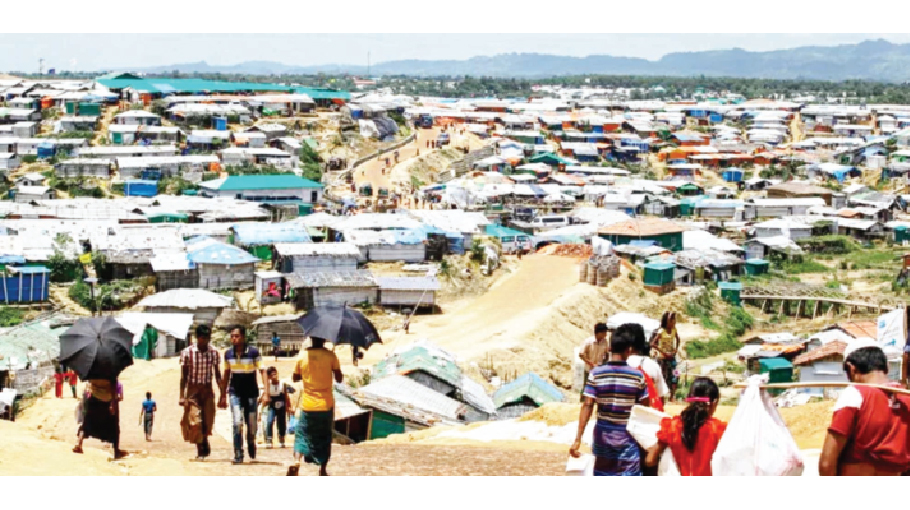Japan to continue support for resolving Rohingya issue: Envoy

Japanese Ambassador to Bangladesh Iwama Kiminori has said Japan will continue to support resolving the Rohingya issue including funding assistance and cooperation with the government and relevant agencies.
As the crisis is turning into its seventh year, it is essential to keep the attention of the global community, while multiple emergencies have been taking place in different parts of the world, said the Ambassador, adding that Japan will continue to work toward the resolution of the Rohingya issue.
The Ambassador had his sixth official visit to the camp in Cox's Bazar on October 20-22 where over 1.2 million Rohingyas reside.
He visited the Ukhiya Specialized Hospital, Save the Children site, and UNHCR WASH (water, sanitation and hygiene) project sites.
The Ambassador also held discussions and exchanged views with host communities in Teknaf.
Moreover, on the last day, he had meetings with the Refugee Relief & Repatriation Commissioner (RRRC) and the Armed Police Battalion (APBN).
Witnessing the ongoing activities in the field, Ambassador Iwama said, "This is my sixth visit to the Rohingya camp in Cox’s Bazar, and this time I witnessed the current situation in the camps impacted by the flood damage due to the heavy rain on August 17.”
He said the damage left by the devastating flood is still having a negative impact on the lives of people in the refugee camps, both physically and mentally.
“At the same time, I saw how the aid funds provided by the Japanese government are being maximized in the refugee camps through the Bangladesh government, UN agencies, and NGOs,” said the Ambassador.“Moreover, I am honoured to attend the inauguration of the Inpatient Department of the Ukhiya Specialized Hospital, and I hope this new opening will improve living conditions of both Rohingya refugees and host communities,” he added.
Since the large influx in August 2017, Japan has contributed over 220 million USD to various interventions in Cox's Bazar as well as in Bhasan Char through international organizations and NGOs.
These assistance included food assistance, healthcare, WASH, shelter, protection, and gender mainstreaming.
In addition, 13th September, the government of Japan has decided to provide the United Nations High Commissioner for Refugees (UNHCR) and United Nations Children's Fund (UNICEF) with assistance worth USD 1 million in response to the Flash Floods in northern and south-eastern Bangladesh including the Rohingya camp in Cox's Bazar.




